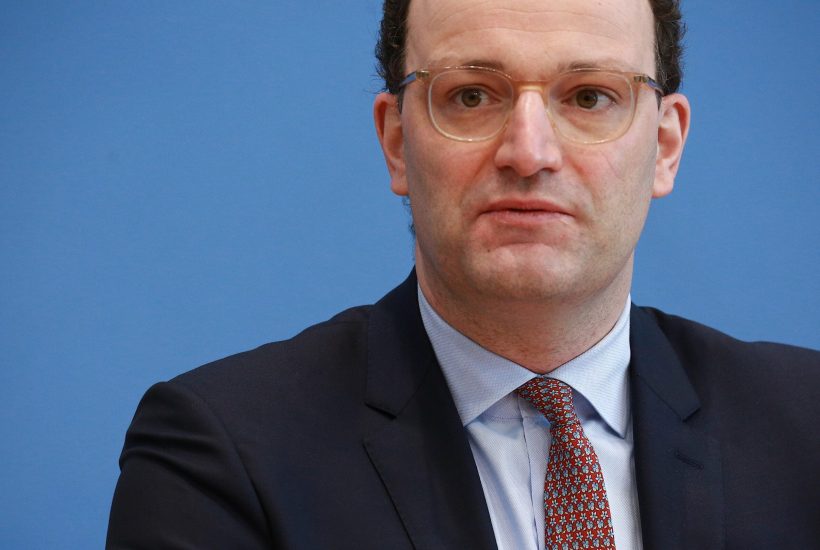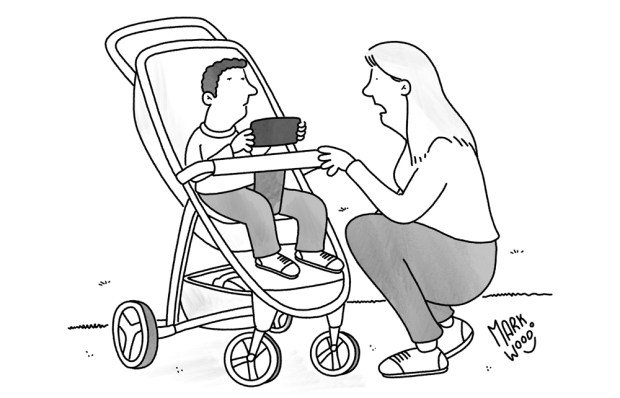Young, polished and confident, Germany’s health minister became the country’s most popular politician in 2020. A darling of the conservative right, Jens Spahn, was even tipped as a candidate to succeed Angela Merkel as chancellor. At the peak of his popularity last November, surveys indicated approval from nearly two-thirds of all Germans. He seemed to reflect the success story that was Germany’s handling of the pandemic, the personification of friendly German efficiency.
Fast forward to last week, and you find a defensive Spahn facing a hostile one-hour long grilling in parliament. His arms crossed and his jaw set, the 40-year-old was visibly tense as he braced himself for questions from angry MPs. Bärbel Bas demanded to know how Spahn would roll out vaccinations effectively once the full amount of expected doses arrives, given that he seemed incapable of getting the sparse stock currently available into people’s arms. Another MP asked when the ‘dilettantism’ would stop. While the Greens’ Janosch Dahmen could not understand why testing technology that had been around for months had only just been approved for use in Germany.
The German people share the increasing scepticism of their MPs. In the latest Spiegel survey, only around a third of participants said that they were satisfied with their health minister’s work.
Yet, the steep career rise of Jens Spahn had looked so promising. At the tender age of 22, he became an MP and immediately took the conservative wing of Angela Merkel’s CDU by storm. From 2018, at the age of 37, he walked the corridors of power as Angela Merkel made him health minister.
When the pandemic hit in 2020, Spahn grasped the unique opportunity to show that he was more than an over-ambitious upstart — a safe pair of hands, capable of dealing with even the most challenging of crises. Indeed, Germany’s low case numbers and the rapid reopening of the economy last summer drew praise from all over the world while its health minister sat at the centre of this brilliant success.
But that was then. Spahn’s decline looks set to be just as steep as his rise. Germans are increasingly frustrated with the botched vaccination programme. Israel has now vaccinated over 90 per cent of its population, the UK around 30 per cent, and even the USA has managed over 20 per cent despite a much larger population. No sign of German efficiency here with a meagre 7 per cent.
Spahn’s health department had long been spared the hostility seen in other countries as Germany’s federal structure meant that many uncomfortable decisions around school closures and job losses had to be taken by the minister presidents in each of the sixteen states. But the German people are increasingly dissatisfied with the ‘it is what it is’ answer they are getting from a minister who is as unwilling to blame the EU as he is to admit his own responsibility.
Spahn’s biggest problem, however, stems from the loss of trust his hypocrisy has earned him. On 20 October 2020, he pontificated on morning TV: ‘At least we know what the main causes of infection are. Parties, social occasions, at home and in private or at events, when going to clubs.’
The Spiegelmagazine has now revealed that, on the very same evening, Spahn met around a dozen CDU party donors for a business dinner at an associate’s house. According to the German news channel ntv, each guest was asked to donate €10,000 (£8,600) to take part. Adding oil to the fire was that Spahn developed symptoms and tested positive the next day, which suggests he was infectious while attending the party. As the timing of this coincided with the eve of the second wave, which swept over Germany so much more crushingly than the first, the ‘do as I say, not as I do’ approach is not a good look for a health minister.
The mortal sin for any German politician, however, is a penchant for censorship. Given Germany’s experience of dictatorships in the 20th century, it is hardly surprising that any attempt to muzzle the free press is like a red rag to a bull to many Germans. The case of Annegret Kramp-Karrenbauer, who Angela Merkel once favoured to succeed her, should have been sufficient warning. In 2019 her steep political climb came to a sudden end when she called for a change in electoral law to prevent social media personalities who had criticised her, from ‘interfering’ with campaigns. That was tantamount to a call for critics to be silenced. She was forced to resign as CDU party leader in January.
When Spiegel investigated corruption claims over Spahn’s financial activities — involving property he had acquired privately as well as deals he had made with PPE suppliers as health minister — he sent a team of lawyers after them. He demanded journalists’ names and attempted in court cases to prevent the media from publishing exact figures and details. In 1963, an open confrontation with Spiegel even brought the mighty Konrad Adenauer down, who had been West Germany’s first chancellor and founding father. It is unlikely that health minister Spahn will get away with this attack on the free press unscathed.
As the German saying goes: when two are fighting, the third one is happy. The third man in this picture is Markus Söder. Heading the CSU in Bavaria, he has watched the internal wranglings in the CDU sister party from a safe distance. His approval ratings as a potential candidate for the CDU/CSU have already overshot those of all his rivals by some margin. Spahn’s close association with CDU leader Armin Laschet, whose understudy and running mate he was looking to become, might well help open the way for Söder, who seems to build momentum outside the mess in Berlin.
Merkel, meanwhile, is keen to distance herself from Spahn’s fall. She has already been forced to abandon his botched plan to roll out free mass-testing from the start of March. Now Germans have no clear way out of a pandemic that has already cost thousands of their livelihood. The country’s best-selling newspaper Bild put a brave face on it when it declared, ‘Dear Brits, we envy you!’ last week, decrying the lack of a clear road map out of the pandemic. With professional and personal failings eroding trust in Spahn, Germans are starting to look elsewhere for a leader. Bild won’t be the only one looking to Britain for inspiration.
Got something to add? Join the discussion and comment below.
Get 10 issues for just $10
Subscribe to The Spectator Australia today for the next 10 magazine issues, plus full online access, for just $10.




















Comments
Don't miss out
Join the conversation with other Spectator Australia readers. Subscribe to leave a comment.
SUBSCRIBEAlready a subscriber? Log in